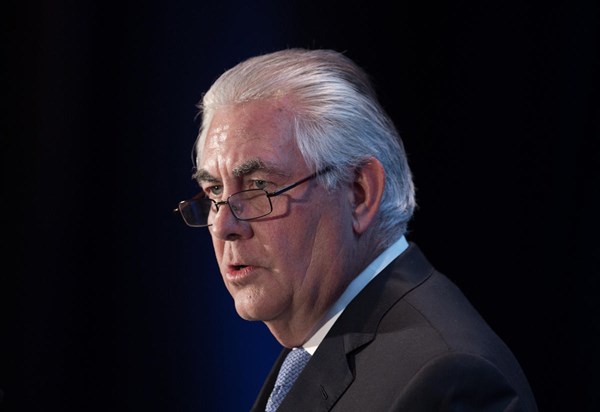Tillerson: Russia is not an eternal rival but an 'occasional partner'
The former CEO of Exxon Mobil Oil and future U.S. Secretary of State Rex Tillerson assured the members of the U.S. Senate that he would adhere to a tough policy with regard to Moscow, Deutsche Welle reported. Speaking at a hearing on Wednesday, January 11, he described Russia as an international threat. "Our NATO partners are rightly concerned about a resurgent Russia," he said. "While Russia is trying to win respect and weight on the world stage, its recent actions disregarded American interests."
At the same time, according to Tillerson, the U.S. should be far-sighted in its relations with the Russians. Russia today is a threat but "it is not unpredictable in the pursuit of their interests." Tillerson believes that Washington should stop regarding Russia as a permanent rival and start treating it as one of a number of countries that are partners “on occasion.”
Tillerson called the sanctions a powerful political tool that interferes with American businesses. From this perspective, he has been considering a new bill that is expected to expand punitive measures against the Russian Federation. He said that he would support punitive measures against Russia until the U.S. does develop a more in-depth approach to the country. "I would leave everything as it is to convey to Russia that it can go either way," he said answering a question about whether it was time, in his view, to lift sanctions against the Russian Federation.
Tillerson stressed his intention to conduct a more assertive foreign policy than the country has had in recent years. "In order to achieve stability, fundamental for peace and security in the twenty-first century, U.S. leadership should not only be renewed but asserted," he said.
Being the former head of the board of directors of the energy group Exxon Mobil, Tillerson has been criticized for his ties with Russia. In 2013, he received the Order of Friendship of the Russian Federation after signing the joint agreement with Rosneft to develop oil fields in the Russian Arctic.
